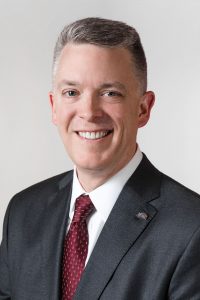One of my early mentors told me, ‘It’s often easier to ask for forgiveness than to ask for permission.’ That piece of advice has … allowed us to be a little more progressive as a bank.
Leading a family-owned community bank offers a lot of opportunities, but transitioning into the helm comes with a number of challenges. You go from being the kid your dad’s team watched growing up to being their direct supervisor.
That’s why, throughout my banking career, I felt compelled to be the hardest worker in the room. I wanted to prove I was worthy of my leadership role, not because I was little Bobby Fisher, but because I had earned it.
I suspect I’m not alone in that sentiment. But I realized a long time ago that the best way to live up to the title is to lead with integrity and stay true to who you are. For me, that means I follow three principles:
- Be a lifelong learner. I’m a big proponent of going the extra mile, because if you don’t continuously grow, you’re falling behind. At the bank, having this approach means you’re always asking “why?” to understand the rationale behind decisions. You’re also not afraid to fail, because some of the best knowledge comes from an unsuccessful attempt.
- Strive to make those around you better. Michael Jordan was one of the greatest basketball players of all time, but he was a great leader as well. When he walked onto the court, everyone stepped up their games, and he made those around him better. In that vein, I work really hard to empower my team to do what they do best and to support them so we can excel together.
- Seek out mentors and be one yourself. One of my early mentors told me, “It’s often easier to ask for forgiveness than to ask for permission.” That piece of advice has served me well and allowed us to be a little more progressive as a bank. When there’s something that we really want to do, we will proceed and manage the fallout later, if it arises. And I try to instill that concept throughout the bank, so everyone feels inspired to seek new opportunities.
Certainly, every leader approaches the role differently, and as future generations of bankers come into their own—like those featured in this issue—they will carve their own paths, centered on their communities. Yet, all community bank leaders approach their roles with one core belief in mind: The relationship—with families, staff, customers, other bankers, and communities—guides everything we do. Above all, being a community bank leader means keeping your relationships as your due north.
Robert Fisher Chairman, ICBA
Robert Fisher is president, CEO and chairman of Tioga State Bank in Spencer, N.Y.
Connect with Robert @RobertMFisher

